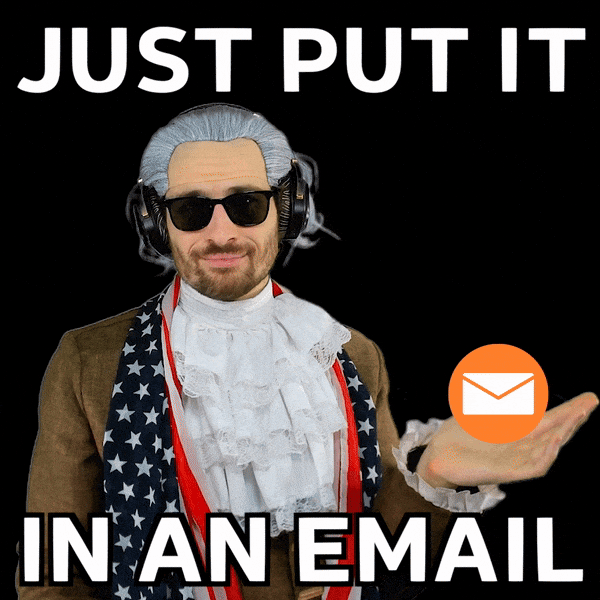Salesforce is considered by many as the No. 1 CRM or customer relationship management system globally. Its attributes of innovation, easy integration, community, and proven results have contributed to this position. In recent years, this CRM provider has been integrating AI functionalities that further enhance its advantages and benefits, leading many to think about how to integrate Salesforce with Artificial Intelligence efficiently and accessibly.

The integration of Salesforce with artificial intelligence and machine learning elevates its automation capabilities, forecasts like customer behavior, and helps drive growth and better results.
Welcome to this new installment where we address how to connect Salesforce with Artificial Intelligence, along with some benefits you can find in a successful integration and the new features of Einstein AI in Salesforce.
Integrating Salesforce with AI is just one of the possibilities for bringing artificial intelligence to your business. Learn how to integrate HubSpot with Artificial Intelligence.
What is Salesforce's Einstein AI and how does it work?
On March 7, 2023, Salesforce announced Einstein AI (Einstein GPT), which is the suite of artificial intelligence functionalities of this CRM provider.
Einstein GPT integrates open and licensed AI models with the functions and data of this CRM, providing users of this system with functions and content that progressively adapt to their priorities and needs.
The integration of Salesforce with Einstein AI is carried out through three models:
- Private and licensed AI functionalities and models of Salesforce, which are intrinsic to Salesforce's own technologies and exclusive to its users.
- Salesforce integrations with OpenAI's ChatGPT, which endow the CRM with enterprise-level generative AI functions specific to this model.
- The Bring Your Own Model option, under the conception of Salesforce as an open and extensible CRM platform, allows integrating other developments to further customize functions and advantages.
This setup provides an excellent configuration to accommodate other much more accessible and customizable AI integrations like Darwin AI.
Any of these three integration models is equipped with the functions to connect in real-time with the data in the CRM provider's cloud (Salesforce Data Cloud) and select, validate, harmonize, and standardize the information for its analysis and the delivery of reports, execution of actions, or timely responses.
What do the Einstein AI functionalities in Salesforce include?
The suite of Einstein AI functionalities in Salesforce includes:
- Salesforce Einstein Copilot: which includes natural language functions inherent to AI models or conversational capabilities similar to that of a human.
- Einstein Copilot Studio: allows companies or users to configure prompts, models, and actions to customize their natural language model to the company's specific priorities or needs. It includes Salesforce Prompt Builder for creating personalized messages and content.
- Skill Builder: a series of functions that enable AI to perform a series of tasks or commands such as managing marketing functions, classifying leads, predicting conversion or retention rates, and sending communications.
- Einstein Model Builder: the tool that enables the ‘bring your own model’ approach, allowing SMEs or Salesforce users to integrate their CRM cloud data with their own tools or external AI models, while using Einstein GPT Trust Layer to add security to the integration and reliability to the base data.
More alternatives to Einstein AI to integrate your CRM? Here is our installment on how to integrate Darwin AI with Zapier.
Benefits of Integrating Salesforce with AI for SMEs

We have already mentioned that the integration of artificial intelligence with CRM platforms can only enhance a range of benefits or advantages of these systems for SMEs.
Knowing how to successfully integrate Salesforce CRM with artificial intelligence brings competitive advantages to small businesses such as enhanced interactions, personalized experiences, improved operational efficiency, increased sales, and making more informed and strategic decisions.
Let's talk specifically about the integration of Salesforce with artificial intelligence:
Improved Customer Interaction
AI algorithms, specifically Einstein in the case of Salesforce, employ natural language processing functions to generate better responses to customer and prospect inquiries.
With machine learning functions, the results of interactions with customers are used by the AI to train itself, continually improving and personalizing its responses.
In this way, Salesforce-using companies can relieve their customer service teams, reduce average response times, and improve the overall user experience, keeping customers satisfied and loyal to the brand.
Personalized Customer Experience
Salesforce's own or integrated AI models connect with real-time customer interaction data stored in the cloud, analyzing large volumes of data in moments to identify patterns, trends, and behaviors.
This information can be used by sales or marketing teams to personalize their campaigns and/or promotions with increasingly enriching tactics for their customers and prospects.
Thus, assertive communication, at the right time and highly tailored to tastes and preferences, translates into higher conversion rates and better results.
More and Better Automation
The most tangible example of automation resulting from the integration of Salesforce with artificial intelligence is what virtual assistants and bots can achieve.
They are designed to enhance the capacity of SMEs and startups to respond promptly to customer inquiries.
Using natural language, they can recognize customer concerns and offer precise responses based on previous interactions and data stored in the CRM cloud.
This is an automation function that lightens the load of customer service staff, freeing them up for more productive operations such as following up with a specific customer or generating new leads.
Strengthening Sales Functions
There is an Einstein AI module with specific models and commands designed to be implemented by sales teams (Salesforce Einstein for Sales), which includes tools specifically designed to enhance the sales force.
For example:
- Einstein Lead & Opportunity Scoring: This feature categorizes current customers and prospects.
- Einstein Account & Opportunity Insights: Provides useful insights or actionable notes on consumer behavior and specific trends in segments, accounts, and opportunities.
These are just examples of many functionalities that allow for increased productivity with Salesforce AI.
How to Connect Salesforce with AI: Preparations, Steps, and Best Practices
As with any integration, there are several points of attention, preparations, and best practices to ensure it is effective and delivers the expected results or benefits.
Consider these steps to achieve a successful integration of Salesforce with AI for SMEs:
Set Clear and Realistic Objectives or Goals
Establish clear objectives for what you want to achieve by connecting Salesforce with AI, such as improving operational efficiency, reducing costs, or increasing productivity.
However, keep in mind that beyond these statements, your goals should be quantifiable and achievable.
Assess Salesforce Capabilities
Understand the functionalities you wish to integrate and enhance with AI. Comprehend how these features can be integrated into your existing business processes and the measurable benefits of each.
Quality of Information Sources and Data
Ensure that the data stored in your CRM cloud or data centers is of high quality, meaning it is reliable, recent, and valid.
Many of these data may contain duplicate, incomplete, spam, or malicious information that will only introduce bias and errors into your AI-driven analyses, especially during the initial interaction.
Model Training
There will be a training phase for your AI model using the data from the Salesforce CRM and other data sources you decide to link, in development or pre-production.
During this phase, the tool will interact with the data and start its interactions and reports. Therefore, it is crucial to carefully review your sources and the quality of the information you provide.
Testing and Validation
Before moving or implementing the Salesforce-AI integration into production, it is essential to conduct thorough testing to ensure everything functions according to the expected goals and objectives.
This step includes functionality tests, performance tests, and integration tests with other systems and applications you continuously manage in your business operations (ERP, payment gateways, CMS, social media).
Gradual Implementation
Instead of executing the implementation in a single day, consider adopting a gradual implementation and testing approach.
This tactic allows your development team or service provider to identify potential errors or incompatibilities and develop the necessary interfaces, minimizing the risk of impacting the company's services and operations.
Involve and Train Your Staff
Not only should technical staff be involved, but the various CRM user areas should also be aware of the integration and new functionalities.
Plan, in conjunction with your reliable AI implementation provider, the different training sessions at the technical or user level to ensure a successful adaptation and effective use by your team.
Ongoing Monitoring, Updating, and Optimization
Is your Salesforce-AI integration delivering the desired results?
To answer this, you must obviously track goals and metrics.
Assign monitoring responsibilities to those in charge, who should continuously evaluate performance and make adjustments and optimizations as necessary. This will ensure that your Salesforce-AI integration remains effective as your business and technological needs evolve.
Darwin AI: An Alternative to Einstein AI for Easily and Economically Integrating Salesforce with AI
Do you know how much a Salesforce-AI integration can cost? According to SF BEN, a Salesforce partner, enabling AI-powered functionalities of this CRM can start at $50 per user per month. Do the math!
Fortunately, there are much more accessible and simple alternatives for integrating Salesforce with artificial intelligence, and Darwin AI is one of them.
Darwin AI is an artificial intelligence model specially designed for small businesses, startups, and digital ventures looking to capitalize on the benefits of this emerging technology.
To integrate with Salesforce CRM, Darwin AI uses Zapier, the No. 1 platform for business application integrations and workflow automation.
Through Salesforce's Bring Your Own Model and Zapier, Darwin AI will integrate seamlessly with your CRM system, equipping your systems with a suite of intuitive tools to enhance customer and user interactions, strengthen your customer service team, and provide your company with a series of insights, reports, and highly configurable intelligent reports.
This integration is intuitive and does not require deep certifications and technical skills. The time for integration and production deployment is approximately seven days.
Darwin AI integrates with Salesforce CRM and is trained using its database, ERP systems, CMS, websites, and other business information repositories and databases, which our team will validate; all to achieve a high level of adjustment and customization to your business model.
Create your own model, delegate up to 50% of your interactions in just a few days, and equip your company with the latest customer interaction technology. Don't let your small business miss out on this technological marvel!
Experience the power of true AI integration in Salesforce CRM for SMEs!
.png)






















